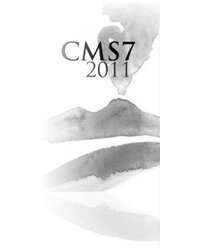
CMS7 2011
Convenors:
Alistair Mutch (lead)
Bernard Leca
Giuseppe Delmestri
Ideas drawing on the philosophical tradition of critical realism have been making steady progress in the study of management and organizations. A highly successful seminar series on critical realism in action has won research council funding in the
Accordingly, papers are sought which, consistent with the broader themes of the conference, tackle one of the following three broad themes:
What barriers are there to using critical realism in practice?
Ideas drawn from the critical realist tradition are often deployed in theoretical arguments and make claims for their efficacy in understanding the world of management and organizations, but even those who have used them to address concrete situations have expressed their concern about how such ideas can be operationalised effectively (Horrocks 2009). We believe such empirical use needs more examples that would clearly show what sort of insights empirical researchers might anticipate from using CR. To do so, we seek papers which reflect on the use of ideas derived from critical realism, especially notions such as causal mechanisms, emergent properties, and processes of morphogenesis and morphostasis to explore issues of management and organization from a critical perspective. We are particularly interested in empirical studies using critical realism that articulate its concepts with method.
How does critical realism relate to other theoretical traditions?
Strictly speaking, critical realism sees itself as a philosophical tradition committed to ‘under-labouring’ for substantive theories, for example by helping to clarify concepts. Accordingly, under this theme we seek papers which consider how extant theories which might shed light on critical management themes might articulate with ideas drawn from critical realism. So, for example, there has recently been a call for those in the neo-institutionalist tradition to engage more with critical management (Lawrence, Suddaby and Leca 2009). How might critical realism facilitate such an engagement, or how might it help develop other approaches?
The focus on under-labouring suggests that critical realism’s contribution to being ‘critical’ is about conceptual clarification. Indeed, the term was first applied in the context of philosophical debate (in opposition to Kant’s critical idealism). This means that critical realism might in theory be consistent with a range of approaches (as Collier (1994) has argued). However, there is a strong affinity to emancipatory concerns within much of the critical realist tradition, but one which is also accompanied by doubts. Specifically, internal critics have argued that the tradition needs to engage more with how ideas are articulated with practical political action. Papers are sought which engage with this debate and with what critical realism can bring to the broader project of critical management, including emerging issues such as the performative potential of the critical agenda and the way it can be released (Spicer, Alvesson and Kärreman, 2009).
Lead convenor: Alistair Mutch, Nottingham Trent University, UK
Alistair is Professor of Information and Learning. He is widely published in the domains of information systems and organization theory, seeking to deploy ideas derived from Archer’s morphogenetic approach. His ‘Technology, organization and structure - a morphogenetic approach’ was published in Organization Science in 2009, showing the application of ideas drawn from social theory to the substantive domain of information systems. Alistair.mutch@ntu.ac.uk
Bernard Leca,
Bernard is Associate Professor in the Department of Management and Strategy at
Giuseppe Delmestri,
Giuseppe is Associate Professor for Organization Theory in the Faculty of Economics and Business Administration of Bergamo University. His interest in conceptual clarification and emancipatory concerns found recent expression in the article ‘Institutional streams, logics, and fields’ published in the 2009 issue of Research in the Sociology of Organizations on ‘Institutions and Ideology’. giuseppe.delmestri@unibg.it
Joe O’Mahoney,
Joe is Lecturer in Organization Studies at
References
Brooke, Carole (ed) (2009) Critical Management Perspectives on Information Systems, Butterworth-Heinemann,
Collier, Andrew (1994) Critical Realism: An Introduction to Roy Bhaskar's Philosophy, Verso,
Delmestri, Giuseppe (2009): Institutional streams, logics and fields. Research in the Sociology of Organizations, 27, 99–128.
Frauley, Jon and Frank Pearce (eds), (2007) Critical Realism and the social sciences: heterodox elaborations,
Horrocks, Ivan (2009). ‘Applying the morphogenetic approach: outcomes and issues from a case study of information systems development and organisational change in British local government’. Journal of Critical Realism, 8(1), pp. 35–62.
Keleman, Mihaela and Nick Rumens, (2007) An introduction to critical management research, Sage,
Lawrence, Thomas, Roy Suddaby and Bernard Leca (eds) (2009) Institutional work: actors and agency in institutional studies of organizations, Cambridge University Press,
Spicer, André, Mats Alvesson and Dan Kärreman (2009) Critical performativity: The unfinished business of critical management studies. Human Relations. 62(4): 537–560.
9/8/10